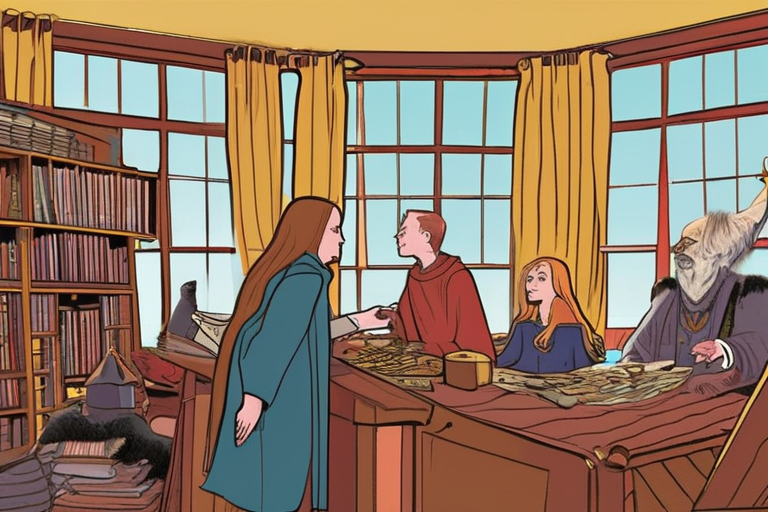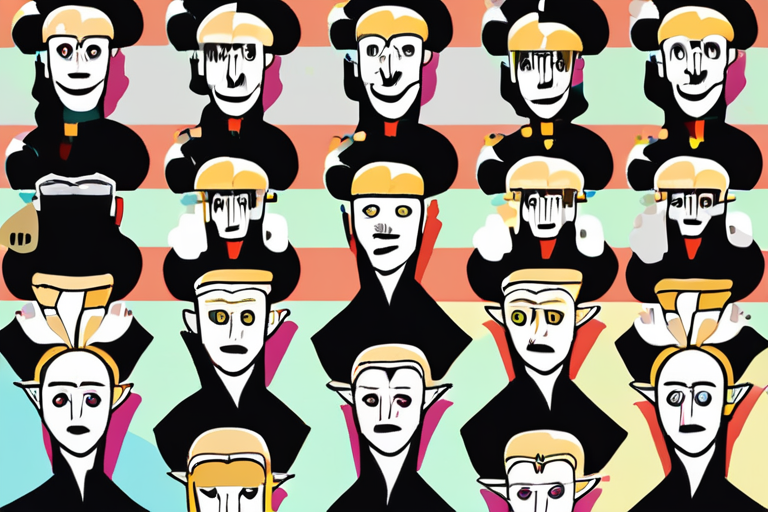The Wizard's Dilemma: How to Enjoy Harry Potter While Disarming J.K. Rowling
As I stepped into the dimly lit movie theater, the familiar theme song of the Harry Potter franchise filled my ears, transporting me back to a world of magic and wonder. But amidst the nostalgia, a nagging question echoed in my mind: can we truly separate the art from the artist? For millions of fans worldwide, J.K. Rowling's beloved series has become an integral part of their lives. Yet, as her transphobic views have come under scrutiny, many are left grappling with the moral implications of enjoying her work.
For Sarah and Emily, a same-sex couple who met through mutual friends, this dilemma is all too real. They share a love for the Harry Potter universe but differ on how to reconcile their enthusiasm with Rowling's problematic stance. "We both agree that her views are hurtful and unacceptable," says Sarah, "but I still want to engage with the world she created." Emily, on the other hand, has chosen to boycott the franchise altogether.
Their disagreement highlights a complex issue at the heart of modern fandom: can we enjoy art created by problematic artists without condoning their views? This is not a new question, but one that has gained urgency in recent years as social media platforms and online communities have amplified the voices of marginalized groups. The answer, much like magic itself, lies in nuance.
The Problem with Problematic Artists
J.K. Rowling's transphobia, which has been widely criticized by the LGBTQ+ community, is just one example of a broader phenomenon: artists whose work we love often hold views that are at odds with our own values. This raises important questions about the relationship between art and artist, and whether it's possible to separate the two.
In the world of art criticism, this conundrum is known as the "problem of the problematic artist." It's a challenge that has puzzled scholars and critics for decades, with some arguing that we should boycott the work altogether, while others propose more nuanced approaches. For instance, philosopher Martha Nussbaum suggests that we can still appreciate the artistic value of a work without condoning its creator's views.
The Wizarding World: A Complex Legacy
The Harry Potter series, which has sold over 500 million copies worldwide, is a cultural phenomenon that transcends its problematic roots. The books and movies have inspired countless fans with their themes of friendship, love, and acceptance. However, as Rowling's transphobia has come under scrutiny, many are reevaluating the franchise's impact.
For some, like Emily, the association with Rowling's views is too great to ignore. "I understand that the series has a positive message," she says, "but I don't want to support an artist who actively works against my community." Others, like Sarah, see the series as a separate entity from its creator.
A Framework for Engagement
So how can we enjoy Harry Potter while disarming J.K. Rowling? One approach is to focus on the themes and values that resonate with us, rather than the artist's personal views. This requires a nuanced understanding of the franchise's complex legacy and a willingness to engage critically with its problematic aspects.
In an era where social media platforms have amplified our voices, it's more important than ever to consider the impact of our actions. By acknowledging the complexities of fandom and engaging in thoughtful discussions about art and artist, we can create a more inclusive and empathetic community.
Conclusion
The wizarding world may be full of magic and wonder, but it's also a reflection of its creator's biases and flaws. As fans, we must confront this reality and find ways to engage with the franchise that align with our values. Whether we choose to boycott or continue enjoying Harry Potter, one thing is clear: the art-world-artist conundrum will only become more pressing as technology continues to shape our cultural landscape.
In the words of Albus Dumbledore, "Happiness can be found even in the darkest of times if one only remembers to turn on the light." For fans of Harry Potter, that light may come from within – a recognition that art and artist are not always synonymous.
*Based on reporting by Vox.*



 Hoppi
Hoppi

 Hoppi
Hoppi

 Hoppi
Hoppi

 Hoppi
Hoppi

 Hoppi
Hoppi

 Hoppi
Hoppi











